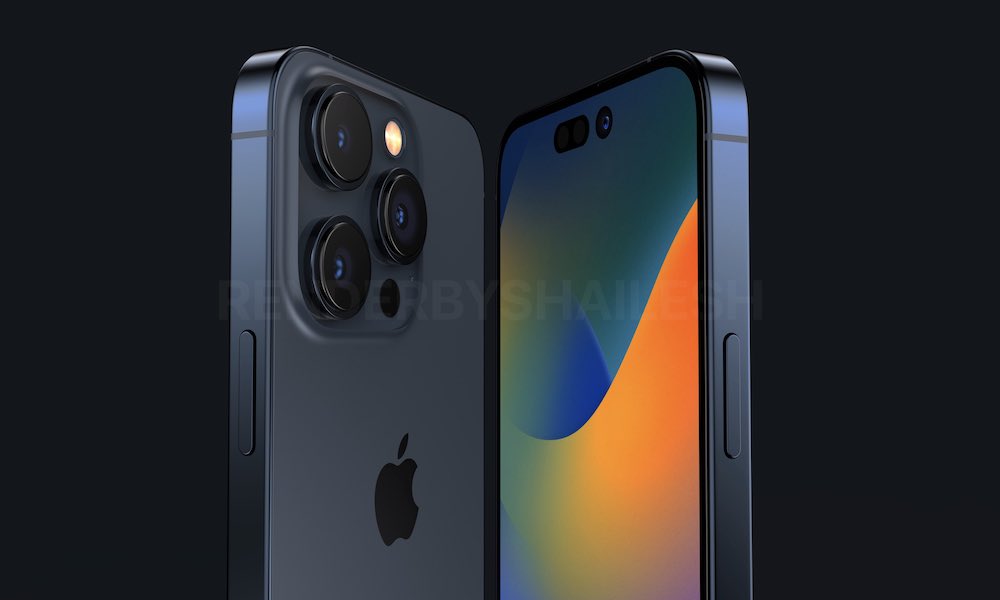Reports Say Apple’s Decision to Limit the A16 Bionic to ‘Pro’ iPhones Isn’t an Isolated Case | Our Sources Respond
 Credit: RendersByShailesh / Twitter
Credit: RendersByShailesh / Twitter
Toggle Dark Mode
Hi everyone. Earlier this week, Ming-Chi Kuo, one of my favorite Apple analysts, reported that the Cupertino-based company not only plans to use the most powerful A16 chip exclusively for the iPhone 14 Pro and iPhone 14 Pro Max, but that it plans to do so for its next iPhone launches as well.
This is a very important statement, and I asked my sources to take a few days to give me the best and most accurate answer they could. Here’s what they have to say:
This is the most likely scenario at this point, although there are still many details that need to be worked out before it happens.
The iPhone 14 and iPhone 14 Max will feature the A15 Bionic chip. More specifically, they’ll come with the A15 Bionic from the iPhone 13 Pro and iPhone 13 Pro Max, as it is slightly better than the one in the iPhone 13 mini and iPhone 13.
My sources say that this doesn’t mean that Apple will openly announce that the new iPhones will come with an A15 Bionic. Rather, the Cupertino-based company could also call this chip “A16.” This move would be similar to what the company did with the Apple Watch Series 7, which has an S6 processor, but Apple still called it S7. The same is expected to happen with the Apple Watch Series 8, which will have an “S8” chip that will actually be the same S6 we already had in the Series 6 and Series 7. I am not saying that’s a bad thing in the smartwatch world, where there’s little need for better processors because the company is mainly focused on battery life and sensors, but it is a whole different story when we are talking about smartphones.
In recent years, the iPhone has always been the most powerful smartphone in the industry, and almost all other companies barely manage to make a chip as good as the one Apple launched a year ago. But the public perception will not be that, and instead, everyone will think they are getting a chip from last year in a $799 phone, and that’s a complaint that makes perfect sense. After all, it is not exactly cheap.
According to my sources, the “base” iPhone models will indeed use an old-generation chip from now on, but as I said, that doesn’t mean Apple will call it last year’s chip. Apple could either call the iPhone 14 and iPhone 14 Max chip “A16 Bionic” and “A16 Pro” for the iPhone 14 Pro and iPhone 14 Pro Max chip – or call both “A16 Bionic” and claim that the “Pro” version has been “enhanced to take full advantage of everything the Pro iPhones have to offer.”
At the moment, I’m leaning towards the second option, even if the first is still being considered within the company.
I’m pretty sure Tim Cook isn’t just going to jump up on stage and say, “And for iPhone 14, we’re going to put in last year’s A15 Bionic chip!” That would be a terrible situation for the PR department at Apple, so the company will either not mention it during the event or just call the chip A16 and give itself time to prepare a good answer when people notice, and that’s the more plausible scenario right now.
Due to current inflation, the company is looking for ways to reduce production costs and increase profit margins. The cost difference between putting in an A15 chip instead of an A16 might be about $10, and even if you think that’s not much, multiply it by the 100,000,000 iPhones Apple sells every year, and you’ll see that’s a lot of money, so even if Apple can cut production costs by $20 or $30 per unit, that ends up being a ton of money saved, and you can see why this is happening.
To summarize: Forget Apple calling the iPhone 14 and 14 Max’s chip “A15 Bionic,” even if it is one, and look instead at what happened to the Apple Watch Series 7 and its processor. That’s all for today.
Let me know in the comments below what you think about this. I hope you found this article helpful. As always, have a fantastic day.
[The information provided in this article has NOT been confirmed by Apple and may be speculation. Provided details may not be factual. Take all rumors, tech or otherwise, with a grain of salt.]







